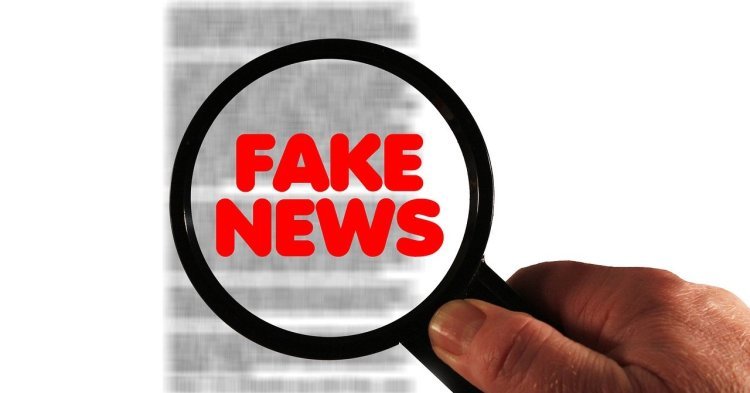In an age where information can be shared in less than a minute, false information spreads fast. Times of fear and uncertainty provide a fertile ground for disinformation to grow. In other words, as the Covid-19 virus spreads around the world, so does another disease: fake news.
Through a vast amount of sources, ranging from obscure blogs over social media platforms to public figures, we have heard that malaria drugs, alcohol and fish-tank cleaning products could cure us of Covid-19. Apparently, the Pope and footballer Cristiano Ronaldo have both tested positive for the virus. And as for an explanation of where the virus originates from: it has been bred in Chinese, American or French labs, depending on where you believe the apocalypse comes from. Although social media giants like Facebook, Twitter and Instagram have developed stricter policies on censoring and removing fake news, private Facebook groups and messages, undetected by algorithms, can still live on and spread.
Falling for false cures
The problem is not the question of whether a famous football player might or might not be affected by the virus. The problem is that people start believing in false cures. After a couple in Arizona tried to protect themselves against Covid-19 by ingesting chloroquine phosphate, the man died while his wife was taken to the hospital in a critical condition. Chloroquine phosphate is an additive used in fish-tank cleaning products. It is also found, in a limited dose, in anti-malaria drugs. We can dismiss this example as the tragic case of two people who were gullible. But these people did not fall for fake news shared on an obscure blog or a private social media chat. The couple was listening to the advice of the 45th president of the United States of America, who advertised the drug as a cure.
Against the advice of his own health care staff, President Donald J. Trump still urges US-Americans to take hydroxychloroquine, an anti-malaria drug, which has not proven to be safe or effective in curing Covid-19. The president himself relies on a small study done in France that has not been peer-reviewed; the results can justifiably be described as doubtful.
However, President Trump is not alone in advertising false information to his own citizens. Brazilian president Jair Bolsonaro, known for his emulation of Trump, dismissed Covid-19 as a simple flu that would cause sniffles at best. Whilst Bolsonaro claimed that Brazilians “never catch anything”, drug traffickers in Rio de Janeiro ordered residents living in the Favelas to stay at home. The fear of how the virus will impact the poorest of the poor has given more moral credit to drug traffickers than to Brazil’s own president.
Calling for a U-turn
Whilst misinformation spreads through the Americas, Europe has its own fair share of false information. As European countries like Italy and Spain struggle with high numbers of Covid-19 cases and mourn the lives lost, information about the disintegration of the EU, the “man-made” virus and other conspiracy theories spread. To tackle the flow of misinformation, the European Commission set up its own website, with its president, Ursula von der Leyen, addressing Europe’s citizens directly to prevent them from falling for outright lies.
The issue is not that people are credulous enough to fall for every piece of information they are told. We live in an age where information has become part of a political war between the right, the left and everything in between. Covid-19 is not much different in its politicization except for its unknown character, which exacerbates the dissemination of false information. What is probably true today could be proven wrong tomorrow, because everyone, even scientists, are working with progressing information at hand.
This situation of uncertainty creates the opportunity that the Trumps and Bolsonaros of this world are exploiting to narrate their own story of the strong man to the rescue in times of crises. Using confusion, not facts, is a tool that serves to build mistrust among people. As humans, we evaluate the information we receive and we compare what we are told with our already existing beliefs. If the new information fits our beliefs, we add it to our belief system. If it doesn’t, we tend to reject it, especially if the information were to call for a u-turn in our thinking, or costly actions.
Believing the facts
In our current crisis, governments have been calling for costly actions, such as curfews and social distancing. But much of the advice was rejected, ignored or went simply unheard. People did not believe in the effectiveness of the measures and wondered about media manipulation. Once again, the fault cannot solely be placed on fake news displayed on social media sites. Many governments were not transparent with what they knew about the virus early on.
In other cases, government officials changed their mind so rapidly, it comes as no surprise that people have a hard time believing what they hear. A good example of this pattern would be British Prime Minister Boris Johnson, who went from proclaiming that he would shake everyone’s hands to shutting down the country. Now, Johnson has been infected with Covid-19 himself.
A cure against mistrust is not easy to come up with. We do not need to believe in every single statement our government issues. We can ask questions; in fact, we should. We can check information over and over again, but we should also listen to sound advice and facts, no matter if they reinforce what we believe or not. As Ursula von der Leyen says in her address to Europe’s citizens: “Those spreading disinformation harm you. Disinformation can cost lives. But together, we can set the record straight”.

Follow the comments: |
|
